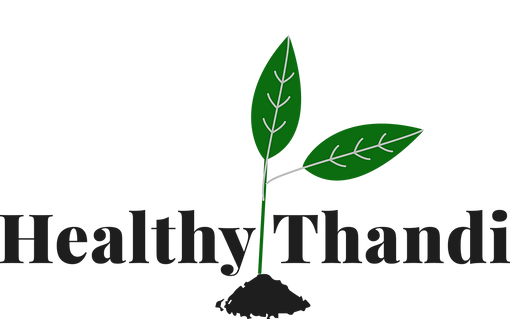In time for Veganuary, I thought it would be necessary to understand the difference between vegan, vegetarian, and plant-based. I believe the confusion is justified. Many vegetarians and plant-based dieters abstain from consuming animal meat or products for religious, ethical, or health reasons, which sounds very similar to the practices adopted by people who lead a vegan lifestyle.

I have also noticed a stereotype around being vegan in today's society. People are generally more welcoming to people who introduce themselves as plant-based for health. On the other hand, Vegans are usually met with a span of reactions ranging from disbelief and curiosity to criticism. It is one of the main reasons I changed from saying I am vegan to saying I am plant-based. I was just not ready to deal with the societal admin that comes with identifying as vegan, and upon further research, I realized that I am not vegan but plant-based.
Being plant-based is not the same as being vegan. Just as being vegan is not synonymous with a healthy diet. Both promote a diet of whole grains, legumes, nuts, seeds, vegetables, and fruits. Both also eliminate animal products, including meat, fish, eggs, dairy, gelatin, and other animal by-products, from one's diet. But here is the difference:
Vegetarians
A vegetarian person abstains from eating the flesh of animals (meat), but the dairy and egg products that come from animals are often still consumed. A vegetarian checks food labels to ensure no meat is present; however, they are not usually concerned by other animal-derived ingredients like gelatin, dairy, etc. As one would expect, there are different variations of the vegetarian diet that suit different people. The two main types of vegetarians are as follow:

Lacto-vegetarians
A Lacto-vegetarian diet is a diet that abstains from the consumption of meat as well as eggs while still consuming dairy products such as milk, cheese, yogurt, butter, ghee, cream, and kefir.
Ovo-vegetarians
An ovo-vegetarian diet excludes all animal-based foods except for eggs. Therefore, meat, poultry, fish, or dairy products like milk, yogurt, and cheese are eliminated, but whole eggs, egg whites, and egg-containing foods like mayonnaise, egg noodles, and certain baked goods are permitted.
Plant-based
A plant-based diet is mostly plant food dominant but is not always exclusive to plant foods. Some concessions for eating animal products are occasionally made out of convenience, tradition, perceived necessity, or habit. The commitment to abstaining from all forms of animal products either grows more robust as planted-based people learn to become more aware, or they find that mainly being plant-based creates the conscious comfort they are looking for. Those living a plant-based lifestyle can closely resemble a reducetarian, but not necessarily an abolitionist. The primary motivation for people going plant-based is personal longevity by avoiding diet-induced illness. A plant-based diet is usually self-motivated and based strictly on scientific, testimonial, and personal evidence of disease reversal, prevention, and overall improvement to health. Here are the different types of plant-based diets.
Whole Food Plant-Based (WFPB)
WFPB is a plant-based diet that is plant-exclusive. This diet avoids processed foods such as processed oil, white flour, and white sugar. WFPB seeks to eliminate the consumption of processed food nearly. However, there is a crossover to health-promoting food labels and organic, non-GMO, and local products. Those who identify as WFPB for health might also be empathetic to the plight of animals and the planet or can be indifferent.
Pescatarian diet
A pescatarian diet is a vegetarian diet that allows fish and seafood consumption. People choose to forgo meat and poultry but still eat fish for one of the following reasons:
- To get the health benefits of heart-healthy fish,
- Curb the environmental impact of eating meat,
- Or it might simply be a matter of taste and enjoyment fish as a dish.
Flexitarian diet
The Flexitarian Diet is a style of eating that encourages mostly plant-based foods while occasionally allowing meat and other animal products. It's more flexible than entirely vegetarian or vegan diets.If you're looking to add more plant foods to your diet but don't want to cut out meat entirely, going flexitarian may be for you.
Vegan
A vegan diet is a plant-exclusive diet and lifestyle motivated by ethics around animal cruelty and the exploitation of all animals and the planet. Vegans consciously avoid, as much as possible, any use of animal meat, dairy, eggs, or any other products of animal origin. Vegans go as far as not wearing or using any animal-derived products. There are different types of vegans:
Raw vegan
A raw vegan does not eat cooked foods. Raw vegans believe that all food should be eaten raw or heated at temperatures below 40–48°C. People who lead this type of lifestyle believe in the hunter-gatherer way of living & eating before we had access to means that would have enabled us to cook food such as fire. Others go raw vegan for environmental reasons or to experiment.
Whole food vegan
I would consider whole food vegans as healthy vegans. Whole food vegans do not eat vegan meat alternatives or processed vegan food.
Junk-food vegan
A junk food vegan is a vegan who regularly consumes highly processed foods that are primarily made in science labs or food factories, i.e., all meat alternatives, vegan cheeses, etc. Most new vegans start here, mainly if they have consumed many animal products before, as transitioning to veganism can be challenging.
In a nutshell, a 'vegan diet; only tells you what someone doesn't eat and shouldn't be confused with the different variations of a plant-based and vegetarian diet. Comment in the comments below which you identify with?

